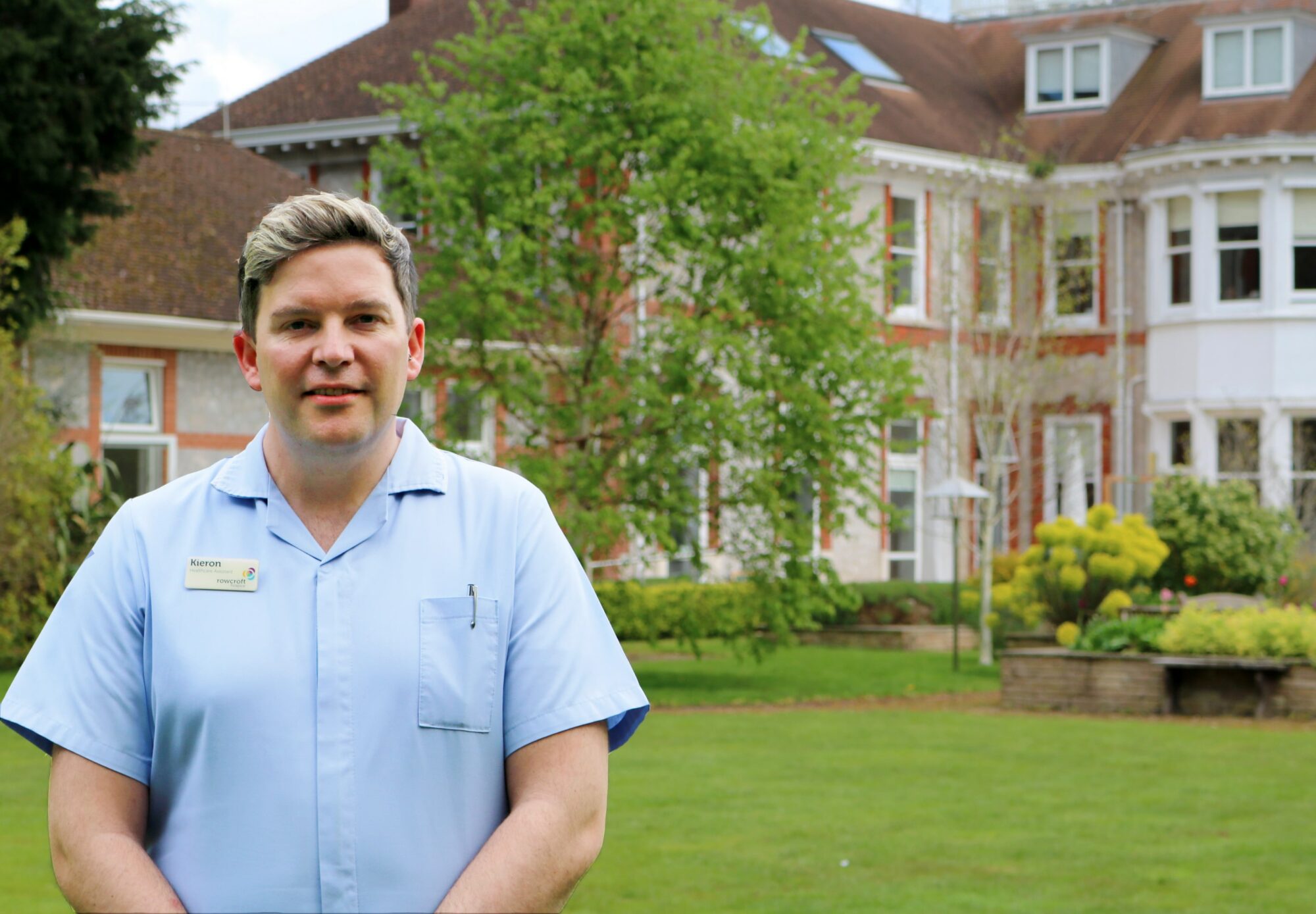Rowcroft’s Kieron George sheds light on some widely held misconceptions
To coincide with Dying Matters Week and as part of his role in training to become an End-of-life Care Ambassador, Rowcroft’s Healthcare Assistant Kieron George has written this blog to highlight a few common myths around hospice care. Here he separates the facts from the fiction.
“There are many different misconceptions surrounding end-of-life care and hospices,” says Kieron. “Hospice care is a widely misunderstood speciality, with many familiar fallacies shown below. My aim with this article is to help dispel some of these myths by highlighting a few facts. Please do share the information below with family, friends, colleagues, and patients and help us to put the record straight.”
Myth: A hospice is a place where people go to die
Fact: It’s a common misconception that you only get admitted to a hospice to die. Although there are patients who come into the hospice for end-of-life care, many patients who are admitted to the Inpatient Unit will come in for a medication review and/or symptom control, for example to get their pain under control. After a short stay, many patients will return home or to a place of care of their choice. It’s also true to say that our hospice isn’t just a building – it’s a philosophy of care in which support can be delivered wherever it is needed across a wide area of South Devon.
Myth: Hospices are only for patients with a cancer diagnosis
Fact: At Rowcroft we care for patients with any life-limiting illness and while this does include cancer, it also includes other illnesses such as heart disease, kidney failure, liver disease, motor neurone disease and other neurological diseases. We offer support for local people with life-limiting illnesses, as well as for their friends and families.
Myth: You must be admitted to the Inpatient Unit for good palliative and end-of-life care
Fact: About 80% of Rowcroft’s patients are cared for in their own homes or care homes. Each year, our Community Team delivers care in the community to around 1400 patients, helping them to maintain their independence and wellbeing. And we have an award-winning Hospice at Home Team who provide highly skilled and specialist care to patients at home in their last two weeks of life.
Myth: Hospices only look after elderly people
Fact: While many people think that hospice care is only for older adults, at Rowcroft we provide specialist palliative and end-of-life care for all adults over the age of eighteen. There are other hospices locally who provide care for patients younger than eighteen.
Myth: Hospices are sad places
Fact: There’s a widespread assumption that hospices are sad, morbid places. However, I challenge you to spend an hour at our hospice without seeing smiles and hearing laughter. Although the patients needing our care are often experiencing a very difficult time in their lives, we aim to create a warm and welcoming environment. We use love and laughter to help our patients and their families spend special quality time together and to create the best memories possible during their stay.
Myth: You have to pay for your care at the hospice
Fact: No, all of our care is provided free of charge to our patients and their loved ones. Rowcroft is a charity that receives NHS funding for 27% of the costs incurred by the hospice. The other 73% of funding comes from the amazing generosity of our local community, for example through fundraising and donations, supporting our shops and cafes, playing the Rowcroft lottery and donating gifts in Wills. We are so grateful for the wonderful support of our community for making our care possible.
Myth: Rowcroft only cares for people in Torquay
Fact: No. While we do provide care for people in Torquay, our care and support extends to people across 300 square miles of South Devon, from Dartmouth to Dawlish and up onto Dartmoor. Each year we care for over 2000 patients across the whole of the South Devon region.
Myth: Once a patient is put on a syringe pump, that means they are expected to die imminently
Fact: No, often this is not the case. A syringe pump is a small, battery-powered pump that delivers medication under the skin at a constant rate over a 24-hour period. Syringe pumps are used to treat a wide range of symptoms in our patients such as pain, nausea and vomiting, seizures and agitation. A syringe pump can be used over a short period of time while the patient needs a specific medicine and many patients are discharged from the hospice with their syringe pumps.
Myth: The hospice is a religious organisation
Fact: No, Rowcroft is not a religious-based organisation. We take great pride in caring for people of all faiths and those with no faith. We offer spiritual and pastoral support and care for all of our patients if they want it. To find out more, please see our spiritual care page.

